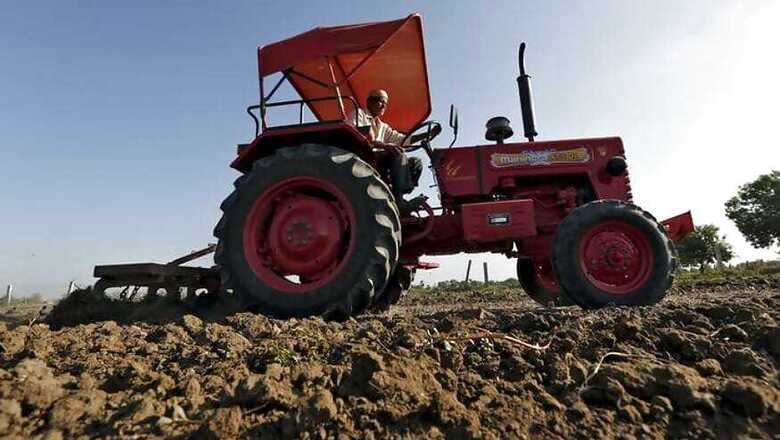
views
New Delhi: Finance Minister Arun Jaitley will present the Budget on Thursday and by his own admission, rural India and infrastructure will be the two big focus areas.
“Two areas to concentrate on in the upcoming Budget are rural India and development of infrastructure,” Jaitley had said at the Hindustan Times Leadership Summit last year.
In many ways, 2017 was the year of the angry farmer. From protests in more than a dozen states, including Delhi, Rajasthan, Madhya Pradesh, Karnataka and Maharashtra, to voting patterns in Gujarat, farmers let their anger be known to the ruling masses.
So severe and visible was the distress in agriculture sector, which is the source of livelihood for 60% Indians, that it became a rallying point in almost every state election fought last year.
As official figures suggest — the Central Statistics Office has predicted farm sector growth to slow down to 2.1% for the current financial year — this anger is unlikely to subside in the coming days.
Jaitley may flag a raft of farm-centric measures in Union Budget 2018, including a state-subsidised income support scheme, an agriculture export plan and schemes for dairy and fishery, demonstrating the government's intent to walk the talk on rural distress ahead of next year's Lok Sabha elections.
The government is also set to launch a "Sweet Revolution" to boost bee farming as part of the broader strategy to improve income from non-traditional agricultural sources.
Jaitley may also flag the launch of a new agricultural exports policy to lift farm income and deal with local gluts. These measures will be central to the government's plan to double farm incomes by 2022.
Amid reports of simmering rural discontent, Jaitley's fifth Budget will also likely seek to decisively shift the policy focus towards 'farmer income', as opposed to the decades-old output-focussed 'food policy'.
According to a report by Icra, the Budget needs to have several policy measures to give a stimulus to the agricultural sector such as on irrigation, crop insurance and agricultural credit to help fertiliser players.
The fertiliser sector is highly regulated with controls on several aspects pertaining to their business. The urea sector works on normative cost-plus-return framework, with controls on farm gate prices, distribution and gas allocation.
The difference between retention price and farm gate price net of dealer margins is paid as subsidy to the industry, which is variable in nature depending on the energy price trends.
In order to provide social and financial security to unemployed workers, the RSS-linked Bharatiya Mazdoor Sangh has batted for implementation of universal basic income and doing away with subsidies.
“At the time of elections, political parties had said in their manifestos that they will bring in more employment, but they have been unable to do so. If the government is facing difficulty in generating employment, then what is wrong in getting the universal minimum basic income,” said Brijesh Upadhyay, general secretary of the union.
The government is also likely to increase the Budget allocation for the Pradhan Mantri Fasal Bima Yojana (PMFBY) to Rs 13,000 crore for 2018-19 from Rs 10,701 crore for the current financial year, sources said.
Amid reports that agriculture will be the top focus of Budget 2018, the Modi government, in consultation with states, is planning to launch a new price support scheme for farmers to prevent distress sales at rates below the minimum support price (MSP).
Under the proposed ‘market assurance scheme’, states will be free to procure all crops from farmers for which MSPs are announced, except rice and wheat. Under the new scheme, the Centre will reimburse states for any losses capped at 30% of the procurement cost.
The proposed scheme will ensure an assured price for the producer, mitigating the price risks faced by farmers after harvest.




















Comments
0 comment